UIOWA iGEM 2018
We are the University of Iowa's 2018 iGEM Team (International Genetically Engineered Machine)! This is our second year competing in this competition.The competition provides students like us—from diverse majors and backgrounds—the opportunity to collaborate, grow teamwork skills, and carry out real-world experiments that have a substantial impact.
Our team will spend the summer working in the lab designing and conducting experiments. Although we are working with faculty advisers from three different departments here at the UI, this project is primarily student-driven and will demonstrate the excellence of Iowa research and the potential of Iowa undergraduates on an international scale.
Our project is to create a 3-hydroxypropionic acid (3-HP) biosensor, allowing us to measure the amount of 3-HP in a culture via fluorescence. 3-HP is a precursor molecule of bioplastics, that can be used in many ways including the production of acrylics and other chemicals. There are few organisms that produce relatively high amounts of 3-HP without killing itself off due to 3-HP’s high toxicity. To maximize production, we aim to take a promoter sequence from a Pseudomonas organism to insert into E. coli and Bacillus subtilis. The reasoning behind measuring with fluorescence is so that we don't stop E. coli or B. subtilis growth while producing 3-HP. We will be measuring 3-HP production in real time.
To successfully continue this project from last year, our goal for this summer is to create a Bio-Brick that functions properly, and to finish all required materials in order to receive a gold medal at the iGEM competition that is held in October.
Please consider making a donation to support our team's research efforts. Thank you!
************
About the iGEM Competition
iGEM is an international synthetic biology competition wherein student teams work, during the summer months, to build a microbe that carries out some sort of ‘programmed’ function – something that microbe would not normally be able to do. iGEM was founded in 2003 at MIT, and last year 340 teams from around the world entered the competition, creating microbes that can sense atmospheric carbon monoxide, clean up wine stains, convert sugar into biofuels or medicines, and more. These teams hailed from Pakistan, Kenya, Canada, Mexico, Brazil, and dozens of other countries. This year, the competition is expanding to Iowa – we will be the first team to ever compete in this competition from the state. Teams and projects are entirely student-initiated and driven, and the tasks that students undertake gives undergraduates the chance to explore synthetic biology through independent research. The competition provides students with an opportunity to develop academic and organizational skills and promotes the values of integrity, good sportsmanship, respect, honesty, celebration, cooperation, effort, and excellence.
About Synthetic Biology
Synthetic biology is a maturing scientific discipline that combines science and engineering to design and build novel biological functions and systems. This includes the design and construction of new biological parts, devices, and systems, as well as the re-design of existing, natural biological systems for useful purposes. It is a multidisciplinary field requiring expertise in biology, chemistry, engineering, and mathematics.
NOTICE: The University of Iowa Center for Advancement is a 501(c)(3) tax-exempt organization soliciting tax-deductible private contributions for the benefit of the University of Iowa. Please visit the UI Center for Advancement disclosures site for additional information.
$10
Base Pair
Base pairs are the fundamental unit of DNA. The base pair is equivalent to a letter of the alphabet. Your gift at this level is appreciated. Thank you!
$25
Codon
A codon is made up of 3 base pairs that represent an amino acid. The codon is equivalent to a word. Your gift allows us to purchase genetic material. Thank you!
$50
Gene
A gene consists of many codons strung together giving us the instructions for a protein. The gene is equivalent to a sentence. Your gift is gene-uinly appreciated. Thank you!
$100
Operon
An operon includes genes and other sequences that control DNA expression. The operon is equivalent to a term paper. Your gift gives us multiple reagents for our team. Thank you!
$250
mRNA
mRNA has been transcribed from DNA and is an intermediate step to the final product. The mRNA is equivalent to a rough draft of the paper. Your gift funds an entire experiment! Thank you!
$1,000
Protein
A string of amino acids put together with instructions from the mRNA. The protein is equivalent to the final copy of a paper, ready for submission. Your gift greatly enhances our ability to conduct research and experiments! Thank you!




